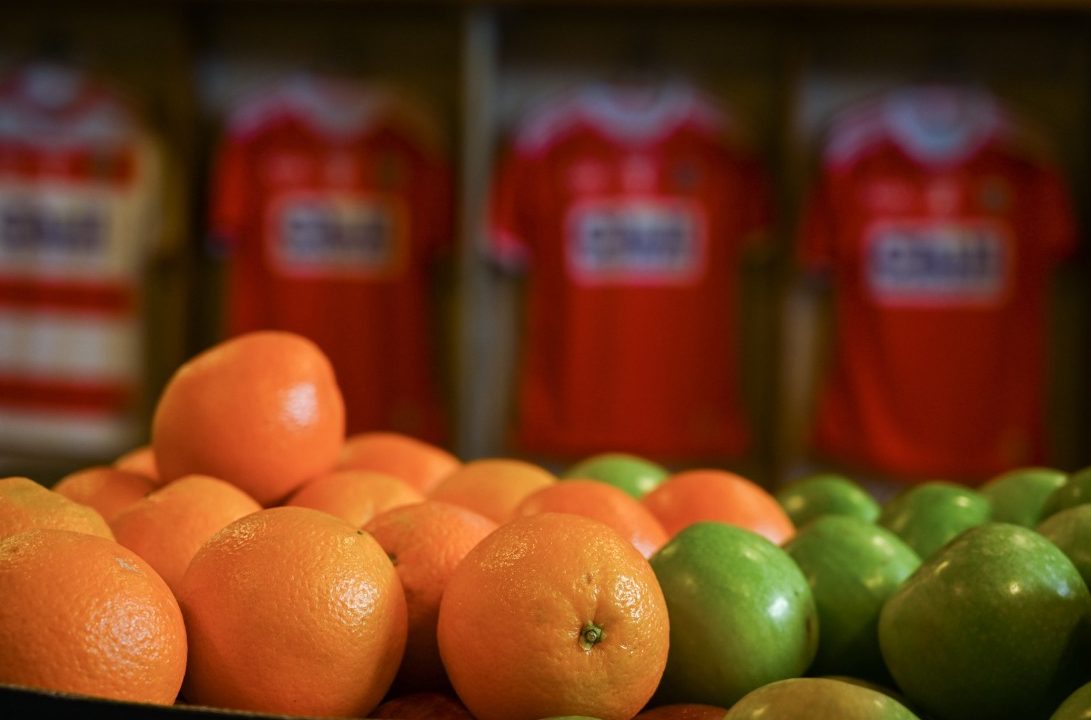This is our newest columnist, Anne Marie Mulholland who will provide monthly advice for those athletes who want to get their diet right
With preseason underway for many players, it is the ideal time to consider how you can get the most out of each training session and work towards your preseason goals. Preseason training blocks are typically intense, consisting of a combination of running and strength sessions, resulting in increased stress on your body. As a result, not only is it important to consider optimal nutrition strategies to increase performance gains and training adaptions, but to prevent fatigue onset, protect overall health and essentially prevent injury occurrence.
So, what are the key dietary factors to consider over preseason?
1.Carbohydrate intake
Through my experience in Rugby Union, carbohydrates are a food group players typically under fuel in, with the fear of ‘weight gain’ or ‘increases in body fat’. But these are also the players who typically experience early fatigue onset in training and report reoccurring illness and injury.
As an element of preseason focuses on improving a player’s endurance capacity through distance running, carbohydrate will be an essential nutrient in a player’s diet to provide energy for these sessions. By consuming slow acting carbohydrate foods throughout your training day e.g. bread, oats, pasta, and potatoes, you are facilitating the build up of glycogen stores (carbohydrate) within your muscle to act as a source of energy during prolonged exercise. Before a heavy training session, you will also benefit from eating a fast-acting carbohydrate source to provide a quick burst of energy e.g. Banana, Fruit juice, 4-5 Jelly babies, Powerade.
It is also important to consider the intensity and duration of each training session and modify carbohydrate intake accordingly e.g.
On a high intensity training day- increase carbohydrate portions at meals and snacks to provide energy for the session.
On a low intensity training day- reduce carbohydrate portions as less energy is required to facilitate the session.
2. Hydration
Going into a session fully hydrated is key- not only will this prevent fatigue but allows you to train harder and promote training gains. Fluid requirements are individual to each player and so the best way to ensure you are hydrated is routine. Why not take a refillable water bottle with you during the day and fill up at least 4 times? As fluid and electrolytes are lost through sweating during exercise, it is important you also consider rehydrating after a session- not only is milk a great recovery drink (containing both carbohydrate and protein), but also replaces electrolytes lost during the session.
3. Protein intake
From my own experience, protein intake is usually well incorporated within athletes’ diets, with players commonly exceeding their recommended daily intake. This is not surprising with the emphasis todays gym culture puts on protein as the fast track way to ‘getting big’. However, what these sources do not explain is that protein is required in the correct quantities and timing, alongside a stimulus i.e. resistance training, to encourage muscle mass development. Without a combination of the two, it will be difficult to see results. So, to encourage muscle growth, 25-30g of protein must be included in your diet every 3-4 hours. Put in practical terms, include a protein source at each main meal and snacks throughout the day, regardless of whether it is a training or rest day.
So, what does 25-30g of protein look like?
1 chicken breast
1 piece of salmon
1 pint of milk
1 tin of beans
3 eggs
4. Recovery
From previous experience, nutritional recovery is very poorly implemented in team-based sports like GAA. Ask yourself this: would you book in to see a physio with a tight hamstring after a session? Would you go to the ice-baths to reduce muscle soreness? And yet something as simple as having a pint of milk post-session/match seems foreign to many. Muscle soreness. Fatigue. Injury risk. Illness. These are all factors that are contributed to by failure to include a nutritional recovery after exercise.
So, what is an adequate ‘nutritional recovery’?
In the first 30-60 minutes:
Post gym:
You require both carbohydrate and protein to replace energy expended and repair damaged muscle. Examples include: a banana and a pint of milk, a Greek yoghurt and a cereal bar.
Post pitch:
As fitness sessions tend to be longer and more intense, you use up more energy (carbohydrate) and so starting to recover quickly is essential. Examples include: a banana with a cereal bar and a pint of milk or a Greek yoghurt with granola and a pint of milk.
5. Eat your Fruit and Vegetables!
Coming into the winter months and with the additional stress preseason puts on our bodies, it is important we look after our immune systems, so make sure to get your 5 fruit and veg a day! If this is a struggle, consult a qualified expert before starting a multi-vitamin. Probiotics are also really important for our immune systems which can be found in products such as Yakult by simply taking one a day.
6. Sport Supplements – beneficial or expensive waste?
Although there is no doubt that when used correctly, supplements can enhance performance, when used incorrectly they are simply expensive waste! Before commencing a supplement, consult a Registered Dietitian/Nutritionist who can guide you on the best products to use and how to use them effectively (ensuring products are free from banned substances).
Although I have provided 6 nutritional points to consider over preseason, a one size fits all approach is not an ideal case.
Anne-Marie is a Sport Dietitian with a BSc in Dietetics and MSc in Sport Nutrition. Anne-Marie has experience in both Clinical and Sport environments and currently works within the IRFU as a Performance Nutritionist. You can catch Anne-Marie on Instagram @amulhollandrd and Twitter @AnneMarie_Mul
Receive quality journalism wherever you are, on any device. Keep up to date from the comfort of your own home with a digital subscription.
Any time | Any place | Anywhere












